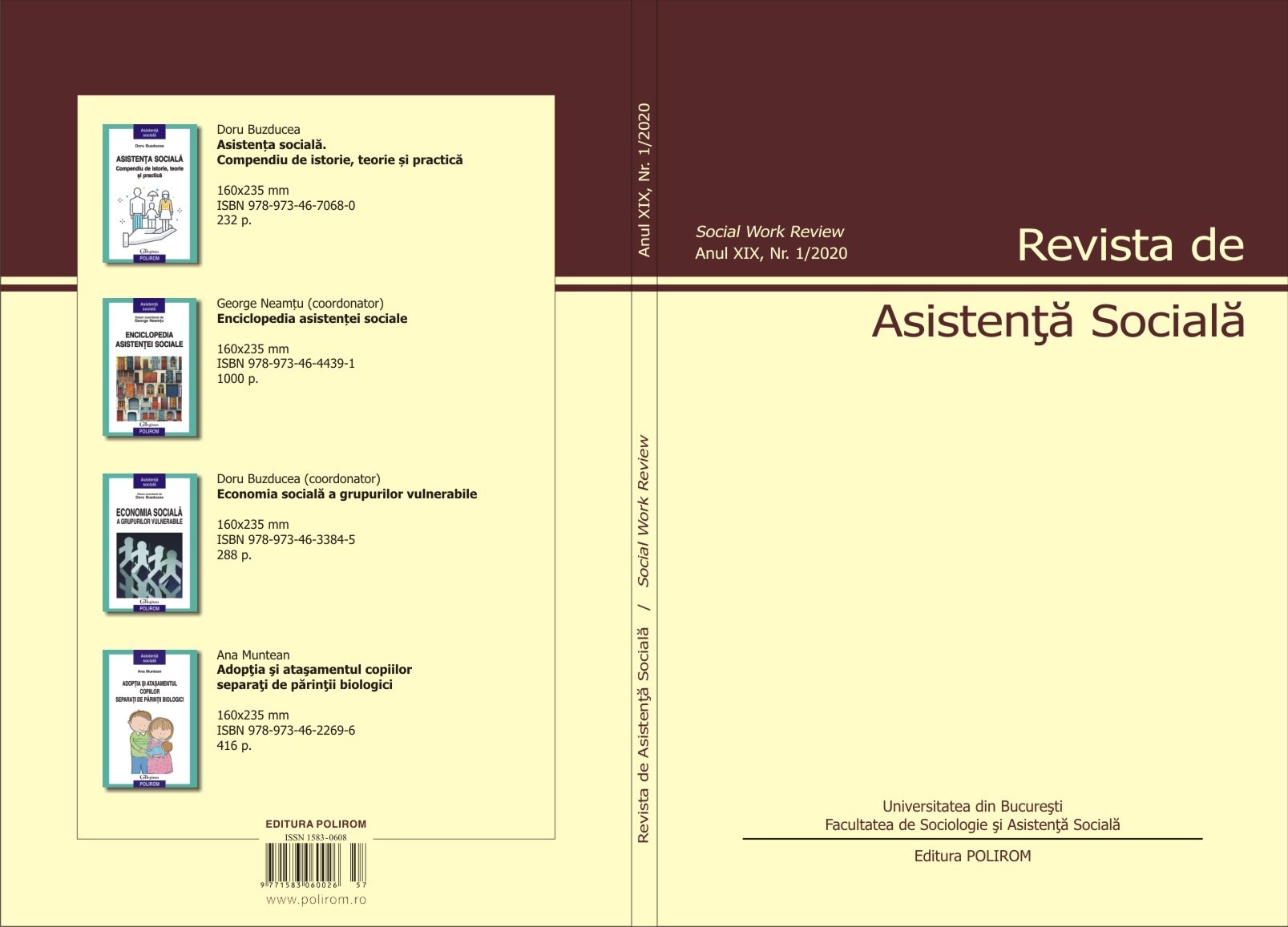Influenţe specifice în consilierea socială a persoanelor cu dizabilităţi
Specific influences in the social counseling of persons with disabilities
Author(s): Cristina Bălău, Florina Onaga, Gabriela Povian, Alexandru Neagoe, Remus RuncanSubject(s): Christian Theology and Religion, Methodology and research technology, Health and medicine and law, Family and social welfare, Welfare services
Published by: POLIROM & Universitatea Bucureşti - Dept. de Sociologie şi Asistenţă Socială
Keywords: disability;counseling;professionalism;religiosity;
Summary/Abstract: This paper explores the theoretical implications and the practical meanings of the application of religious principles in the practice of social work (namely the social counselling of persons with disabilities) in relation to the current approach, which is predominantly secular. The research is based, on the one hand, on the religious heritage of the social work profession and, on the other hand, on the predominantly secular approaches in the social work field. A first section presents aspects of the social counselling process for people with disabilities, followed by a section dealing with the value of professionalism within the social work intervention. A third part focuses on the roles of the participants in the counselling process, while the fourth one deals with the relevance of personal religiosity for social intervention. The last section of the paper presents a qualitative research which has been conducted in order to analyse the perception of practitioners who are involved in counselling people with disabilities regarding the role that religiosity can play in professional practice. The quality of the counselling is not only represented by the quality of the result which was obtained, but also by the quality of the structure and of the process of the intervention. The study highlighted the relevance of the action as a whole, the quality of the relationships, the communicative and strategic planning during the whole process. Based on the results of the research, it can be stated that a certain level of religiosity of the practitioner in the field of social counselling, contributes both to the efficiency of the practitioner-beneficiary relationship and of the beneficiary-community relationship.
Journal: Revista de Asistenţă Socială
- Issue Year: XIX/2020
- Issue No: 1
- Page Range: 115-126
- Page Count: 12
- Language: Romanian
- Content File-PDF

